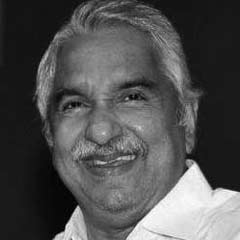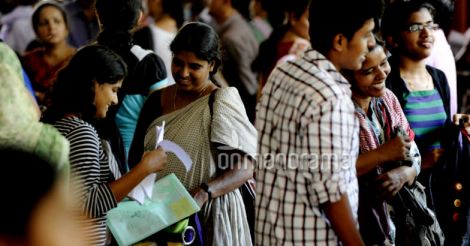Undeniably, the A. K. Antony-led government’s decision to grant permission to self-financing colleges has had a profound impact on the state’s higher education sector. At that time, the state government's financial health was quite bad and opening of new professional colleges either in the government sector or the aided sector was beyond it.
In fact, the move came in the wake of exodus of students from the state to other parts of the country to pursue higher education.
From five medical colleges and 12 engineering colleges in 2001, the numbers have grown to 24 and 119 respectively. Kerala also has 19 dental colleges and 14 Ayurveda colleges apart from several private institutions of higher studies now. Notably, the state did not spend a single penny to establish them.
The Antony government’s view was that any two private colleges would effectively serve the purpose of one government college. As per the agreement, the government would fix the fee for the 50 percent merit seats allotted to it. The remaining 50 percent shall be filled by the management with eligible candidates. A consensus was also reached on a realistic fee structure before clearing the proposal for self-financing colleges.
However, the government had to scrap the system of cross-subsidy on account of various provisions for the protection of the rights and interest of the minorities in the Constitution as well as the Supreme Court verdict on two cases. Fortunately, the demand for 50 percent government merit quota received favorable reactions from different quarters.
On the other hand, the half-baked measures adopted by the LDF government when it came to power in 2006 handed undue advantages to the managements of self-financing institutions. The opposition UDF had clearly highlighted the legal and practical difficulties when the government brought in legislation to control the self-financing managements. As the opposition was in support of the well-intentioned Bill, which was proposed to ensure social responsibility of self-financing institutions, it was passed unanimously. As expected, legal battles followed hitting the functioning of self-financing institutions across the State.
During the tenure of the 2006-2011 LDF government, fees for merit category seats were hiked from Rs 95,000 to Rs. 1.38 lakh. The succeeding UDF government did not change the fee structure during its first year in office. In the next four years, it effected only a nominal hike - Rs 12,000 in second year, Rs 15,000 in third year and Rs 10,000 between fourth and fifth years - or Rs 47,000 in total.
The present LDF government, however, gave the nod to increase the fees in the merit quota alone by Rs 65,000 in its first hundred days itself. Even the managements would not have expected such a generosity from the government! The steepest increase, however, was for dental stream as the fee for a seat under the government quota was hiked by Rs 90,000 to Rs 2.1 lakh.
The Pariyaram Medical College in Kannur is a cooperative sector institution run by a director board controlled by the CPM. During the previous UDF government’s term, the Pariyaram Medical College had a lower fee structure than other self-financing colleges. Recently, while sanctioning a hike of Rs 65,000 for an MBBS seat in the self-financing sector, the LDF government went a step further and increased the fee by Rs 1 lakh at the Pariyaram Medical College!
The new government has taken many unilateral decisions on issues pertaining to self-financing colleges. Without taking anybody into confidence or studying the gamut of issues, the government held talks with only the managements and considered their requests favorably. The chief minister justified his stance claiming that the practice of collecting capitation fee could be stopped with this hike. The findings of the J. M. James Admission Supervisory Committee for Professional Colleges in Kerala that several colleges continued to collect capitation fee from parents in the name of bank guarantee and refundable deposits, however, exposed the shallowness of the chief minister’s argument.
The health minister, who also defended the steep hike in fees, further claimed that the government allowed to hike fees only after self-financing medical college managements agreed to increase the number of merit seats under the government quota.
It was true that the managements decided to cooperate with the government after the latter agreed to look into their demands, but we should not forget that this government has denied chance to 250 students to pursue MBBS course for a fee of Rs 25,000. Those seats include the 100 seats each in the newly created government medical college in Thiruvananthapuram, and the ESI Medical College at Parippally in Kollam, and the 50 seats in the Government Medical College, Idukki. The government cannot absolve of its responsibility for this loss.
When the High Court imposed a conditional stay on the government decision to take over the admission process, the LDF government threw in the towel without even bothering to file an appeal.
Moreover, it stood as a mute spectator when those colleges who had not agreed to the terms and conditions went ahead with admission processes ‘arbitrarily’.
Both the DYFI and the SFI, who had turned our streets into war zones over MBBS fee structure when the UDF was in power, are maintaining a convenient silence now.
It is high time we evolved a mechanism that would put an end to the annual confrontations over the process of admission and the fee structure at self-financing institutions. I feel, with the introduction of National Eligibility Entrance Test, most of the issues surrounding the MBBS admission would be solved.
Also, the government needs to ensure that admissions to medical and dental courses in self-financing sector do not get restricted to the wealthier sections in society.

























 Representative image
Representative image